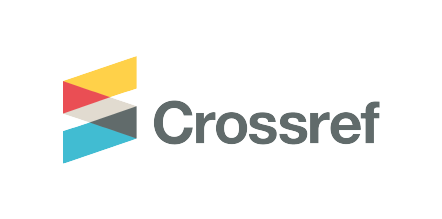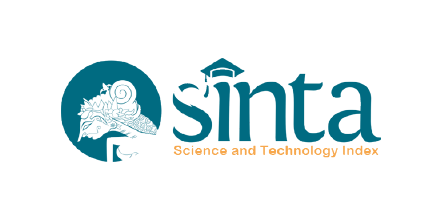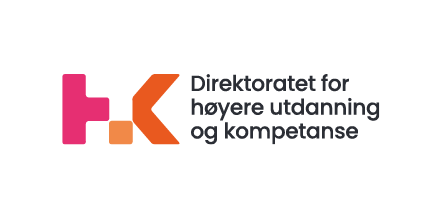Narratives of Mothers: An Optimistic View of Raising Children with Disabilities
DOI:
https://doi.org/10.21776/ub.ijds.2021.008.02.07Keywords:
Optimism, families, positive coping, quality of lifeAbstract
The study explored the experiences of 49 mothers of children with disabilities through interviews at home. The children were in the age group of 5-13 years, and were studying in mainstream schools. The families resided in New Delhi, the capital of India. They were from the middle socio-economic status and followed Hinduism. The mothers described a wide range of difficulties ranging from financial, emotional to interpersonal in raising their children. However, 21 mothers among them stood out from the rest. Their narratives were optimistic and had positive perceptions. They gave positive meanings to their lives and to the children's situation despite challenges and even though the larger system viewed them negatively. The paper highlights themes that emerged as part of the journey of mothers in developing a more optimistic view of their children's situation and their own self as a person. The research has implications for family interventions.
References
Alur, M. (2001). Some cultural and moral implications of inclusive education in India personal view. Journal of Moral Education, 30, 287-292.
Berg, B. L. (1995). Qualitative research methods for social sciences. Boston: Allyn & Bacon.
Dunst, C. J. (2002). Family-cantered practices: Birth through high school. Journal of Special Education, 36, 139-147.
Dunst, C. J., Trivette, C. M., & Deal, A. G. (Eds.). (1994). Supporting and strengthening families: Methods, stratifies and practices (Vol. 1). Cambridge, MA: Brookline Books.
Bhattacharya, T. (2010). Re-examining issue of inclusion in education. Economic and Political Weekly, 45(16), 18-24.
Gokhale, B. G. (1961). Indian thought throughout the ages: A study of some dominant concepts. Bombay: Asia Publishing House.
Government of India. (2010). Right to Education Act, 2009. Retrieved from http://mhrd.gov.in/sites/upload_files/mhrd/files/upload_document/RTI1.pdf
Government of India. (2014 ). Guidelines for inclusive education for CWSN. Retrieved from http://rmsaindia.gov.in/images/IEDSS_Guidelines.pdf.
Government of India. (2016). The Rights of Persons with Disabilities Act, 2016, Gazette of India (Extra-Ordinary). Retrieved from http://www.disabilityaffairs.gov.in/upload/uploadfiles/files/RPWD%20AC T%202016.pdf
Government of India. (2018 ). An integrated scheme for school education: Framework for implementation (draft document). Retrieved from http://samagra.mhrd.gov.in/docs/Framework_IISE%20_F.pdf
Gupta, A., & Singal, N. (2014). ˜Positive perceptions in parents of children with disabilities, Asia Pacific Disability Rehabilitation Journal 15(1), 22-35.
Hauser-Cram, P., Warfiels, M. E., Shonkoff, J. P., & Krauss, M. W. (2001). Children with disabilities: A longitudinal study of child development and parent well-being. Monographs of the Society for Research in Child Development, 66, Serial No. 266.
Hulme, P. A. (1999). Family empowerment: A nursing intervention with suggested outcomes for families of children with a chronic health condition. Journal of Family Nursing, 5, 33-50.
Author, (2020). India's demographic dividend: addressing the challenge of poverty in educating adolescents in M. Watzlawik & A. Burkholder (Eds.), Educating adolescents around the globe (pp.59-79). Springer International Publishing.
King, G., Baxter, D., Rosenbaum, P., Zwaigenbaum, L., & Bates, A. (2009). Belief Systems of Families of Children With Autism Spectrum Disorders or Down Syndrome. Focus on Autism and Other Developmental Disabilities, 24(1), 50-64. https://doi.org/10.1177/1088357608329173
Palsane, M., & Lam, D. J. (1996). Stress and coping from traditional Indian and Chinese perspectives, Psychology and Developing Societies, 8, 1, 29-53.
Paranjpe, A. C. (1996). Some basic psychological concepts from the intellectual tradition of India, Psychology and Developing Societies 8, 1, 7-27.
Poston, D. J., & Turnbull, A. P. (2004). Role of spirituality and religion in family quality of life for families of children with disabilities. Education and Training in Developmental Disabilities, 39, 95-108.
Scorgie, K., & Sobsey, D. (2000). Transformational outcomes associated with parenting children who have disabilities. Mental Retardation, 38(3), 195–206. https://doi.org/10.1352/0047-6765(2000)038<0195:TOAWPC>2.0.CO;2
Singal, N. (2016). Schooling children with disabilities: Parental perceptions and experiences. International Journal of Educational Development, 50(C), 33- 40.
Stainton, T., & Besser, H. (1998). The positive impact of children with an intellectual disability on the family. Journal of Intellectual and Developmental Disability, 23(1), 57-70. https://doi.org/10.1080/13668259800033581
Taunt, H. M., & Hastings, R. P. (2002). Positive impact of children with developmental disabilities on their families: A preliminary study. Education & Training in Mental Retardation & Developmental Disabilities, 37(4), 410-420.
Weber. R.P. (1985). Basic content analysis. New Delhi: Sage.
World Bank. (2007). People with disabilities in India: From commitments to outcomes. Retrieved from https://documents.worldbank.org/en/publication/documents-reports/documentdetail/577801468259486686/people-with-disabilities-in-india-from-commitments-to-outcomes
Ylvén, Regina & Bjorck-Akesson, Eva & Granlund, Mats. (2006). Literature Review of Positive Functioning in Families With Children With a Disability. Journal of Policy and Practice in Intellectual Disabilities. 3. 253 - 270. 10.1111/j.1741-1130.2006.00089.x.
Downloads
Published
How to Cite
Issue
Section
License
Copyright (c) 2021 Priti Joshi

This work is licensed under a Creative Commons Attribution-NonCommercial 4.0 International License.















